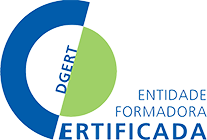Pyrolysis and Gasification Technologies for Plastic Waste: Technical and Economic Aspects
8th EditionColossal amounts of plastic wastes are dumped into the oceans (about 12 million tons/year) and it is expected to grow exponentially if nothing is done to prevent this. The impact of plastics in the oceans has been estimated to an annual loss of up to $2500 billion in the value of benefits derived from marine ecosystem services or 3.3% of the world GDP.
Until a true circular economy is put in place for all plastic objects we consume, it is therefore vital to develop and deploy solutions for the most polluted areas, i.e. in low income countries where no plastic waste management systems are in place. Pyrolysis technologies provide a solution for this by producing derived fuels that can be sold and/or transformed into electricity and heat. The course will explore the various commercial and near-commercial pyrolysis technologies available today, with their advantages and drawback, and potential for market penetration.
Upon completion of the course, the participants should be able to:
- Explain pyrolysis and gasification principles and techniques for plastic conversion into gaseous, liquid and solid fuel components. Their limitations and suitability to various types of plastic.
- Analyse the mass and energy balance of the two main types of pyrolysis technologies (medium temperature, high temperature) and draw conclusions on their application in practice.
- Define the requirement for the economic feasibility of a given project.
- The nature and impact of the plastic waste problem. Plastic composition, additives, toxicity, degradation behaviour, impact on ecosystems, food-chain and health issues.
- Review of existing solutions for plastic recycling and conversion to energy and their limitations (material recycling, incineration, gasification…).
- Current status of plastic pyrolysis processes: batch/semi-continuous/continuous, medium temperature range (400-500 C), high temperature range (700-800°C), use of catalysts.
- Current status of gasification process for plastic wastes and mixed wastes.
- Examples of running pilot and demonstration plants.
- Mass and energy balance of existing plants. Demonstration with the help of Stan2web software.
- Economic feasibility of a demonstration plant using Retscreen Expert Clean Energy Management Software.
- Engineers;
- Team leaders;
- Mechanical and electrical Engineers;
- R&D specialists;
- Project managers;
- Consultants;
- Economists;
- Teachers;
- Everybody interested in this topic.
- Theoretical contributions by PowerPoint presentations, examples (some with videos), Q&A with participants
- Short exercises with corrections
- Hands-on short training on Stan2web software (www.stan2web.net)
- Demonstration of Retscreen Expert Clean Energy Management software.
- Case studies on the mass and energy balance of existing plants
- Participants will be provided with a training licence for the latest version of RETScreen Expert software.

Jean-Bernard MICHEL
linkedin.com/in/jbmichel1Professor at the University of Applied Sciences and Arts Western Switzerland (HEPIA and HEIG-VD) from 2004 to 2018 where he initiated and led many R&D projects in the field of energy and environment, especially for biomass and waste recovery. He acts as trainer for Cenertec and also acted as consultant and trainer in Morocco, India and China on several occasions. He has gained an extensive experience in energy processes and R&D in several internationally renowned laboratories in the Netherlands and Switzerland (IFRF, Battelle, CSEM).
He advises several companies for the energy recovery of waste and new energy technologies, and he continues to train engineers in renewable energies, bioenergy, and waste recycling.
He is also:
- Solar Impulse Expert for the World Alliance for Efficient Solutions;
- Founder of the Swiss association for Project Management and member of the advisory committee, www.project-management.ch;
- IPMA Level B © Certified Project Manager (2001-2020).
ONLINE / LIVE
How does this Online/Live Training Work?
- Register on this page
- After registering and paying, Participants will receive an access link to click and enter the platform at the scheduled time.
- The training will be given in an Online/Live format, at the scheduled time, Live.
- This platform is very simple to use and allows for interactivity. Participants will be able to participate, comment, ask questions, clarify doubts, in writing or by voice, in real time.
This training, with a duration of 16 hours, will run on the following days:
17th, 18th, 25th and 26th of June 2025
Timetable:
08:30 – 12:30 BST | Break: 10:30 – 11:00
09:30 – 13:30 CEST | Break: 11:30 – 12:00
The registration fee is 480.00 € + VAT (23%), a total value of 590.40 € payable to CENERTEC until the date of the Course and includes:
- Access to the E-Learning Platform
- Access to Supporting Documentation
- Certificate



